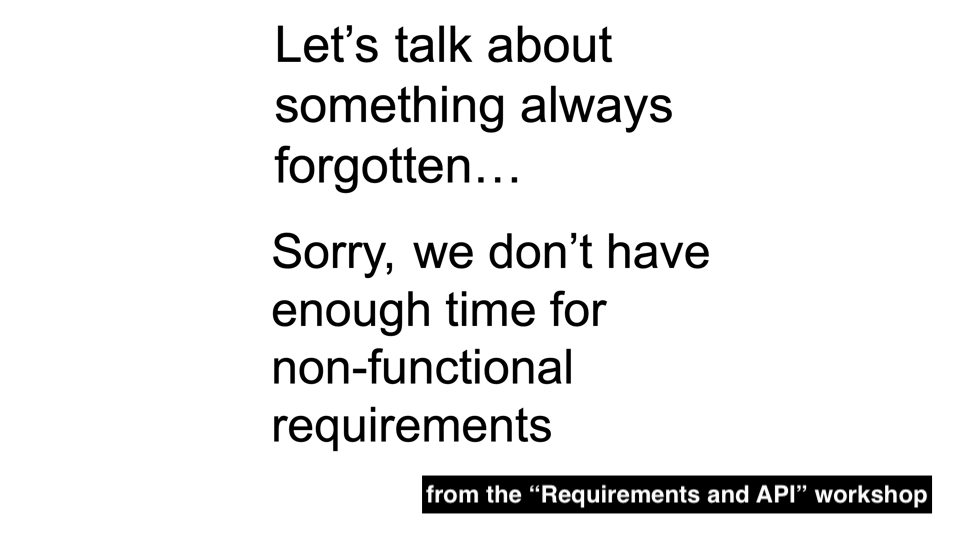Non-functional Requirements and API

Previously we discussed the notion of requirements for APIs. Now let's talk specifically about their quality attributes. Or how we can refer to them: non-functional requirements.
When we use the term "non-functional requirements," we imply that there should be "functional requirements" as well. What is a functional requirement for an API endpoint? Return a response based on the provided input data. It sounds oversimplified, but this is how it is.
In detaching API from the functionality, meaning we have a variety of APIs for different consumers, I like an association with a "door." Despite any context, the primary function of a door is to change its state from closed to open and vice versa. The door can be built from different materials, and it can be opened by various means. The opened door can lead to different locations. But its primary function remains the same. We are not considering it as a weapon, even if you hit someone by a door (accidentally, I believe).
However, the quality of that door matters, and the same we apply to API. There are dozens of non-functional characteristics, so we only look at major ones.
